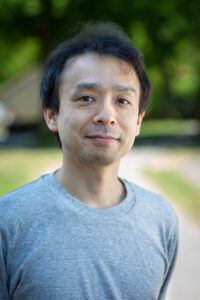Gene regulatory mechanisms in the launch process of T cell development
We’re honoured to welcome Dr. Ellen Rothenberg, Edward B. Lewis Professor of Biology at Caltech, for a special research seminar.
Events
Calendar

- This event has passed.
SBME Seminar: Recording Cellular Memory to Unveil the Mechanism of Brain Memory – Dr. Taro Kitazawa
SBME Seminar: Recording Cellular Memory to Unveil the Mechanism of Brain Memory – Dr. Taro Kitazawa
Seminar Abstract:
There is an emerging view that a sparse ensemble of neurons, termed as memory engram cells, represents the memory substrate. Revealing the molecular basis regulating memory engram formation is a fundamental topic for contemporary neurobiologists. Recent advancement of single-cell sequencing technologies, such as scRNA-seq, has revealed that neurons belonging to the same engram ensemble, which encodes a specific memory, consist of diverse subpopulations with unique molecular profiles that correlate with specific functional roles. However, our understanding of the molecular mechanisms regulating the dynamic processes that give rise to the diversity among engram subpopulations is still significantly limited. Existing high-throughput sequencing methods have an inherent limitation that they can primarily provide a static ‘snapshot’ of molecular states due to the need to lyse cells for nucleic acid extraction, posing a barrier in analyzing cell fate-decision dynamics. Thus, a novel technology for whole-genome history tracing, namely multi-timepoints observation, represents a significant innovation.
Here, we report a novel ‘time-machine ’-like technology for retrospectively tracing the history of epigenetic and transcriptional changes at specific past time points in postmitotic neurons, a concept for which we have recently established a proof of principle. This will enable the analysis of multimodal epigenetic and transcriptional dynamics of over 10,000 genes, as well as more than 100,000 regulatory elements during neuronal fate decisions. We are applying this technology to reveal how heterogeneous subpopulations of engram cells emerge in the mouse brain, with a special focus on their excitability in memory encoding and recall events. Through this approach, we will address how a subpopulation of engram cells becomes functionally relevant during the dynamic procedure of memory formation, representing potential ‘real’ engram cells.

Dr. Taro Kitazawa’s Biography:
Dr. Taro Kitazawa is a Group Leader at DANDRITE Nordic-EMBL and an Associate Professor at Aarhus University, having earned his Ph.D. in 2014 from the Graduate School of Medicine at the University of Tokyo. In 2015 He joined the Friedrich Miescher Institute for Biomedical Research (FMI) in Switzerland (2015–2022), where he employed transcriptomics and epigenomic profiling to uncover a unique Polycomb-dependent chromatin mechanism that primes immediate early genes for rapid induction (Kitazawa et al., Nature Genetics, 2021). Now leading his own lab in Denmark since 2022, he focuses on the epigenetic and chromatin-based underpinnings of neuronal maturation and memory formation, innovating genomics technologies—such as whole-genome retrospective history tracing—to capture transient transcriptional and epigenetic states that shape long-term neuronal identity. Dr. Taro Kitazawa also holds ERC-StG Grant, JST (Japan Science and Technology Agency) -PRESTO Scholar, and Fens-Kavli Scholar (2023–2027) appointments.
Location:
LSC 1002